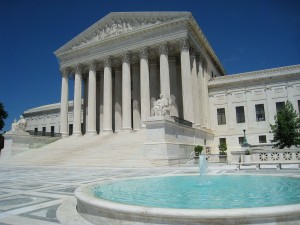Why Hire a Federal Crime Attorney: Safeguard Your Rights with Expert Legal Help
Demystifying the Refine of Federal Appeals: What You Required to Know
Browsing the elaborate realm of government allures can commonly appear like passing through undiscovered waters for those unfamiliar with the procedure. Understanding the nuances of appellate court territory, the intricacies of submitting a notice of allure, presenting a compelling quick, and making a convincing oral debate are crucial components that can dramatically affect the result of an instance. By unwinding the layers of intricacy surrounding government allures, individuals can gain a more clear understanding into the devices that govern this critical point of the lawful system.
Recognizing Federal Appeals Process
Exploring the intricate realm of the federal appeals procedure unveils a methodical and structured trip with the judicial system. Federal charms function as a crucial mechanism for examining choices made by lower courts. Understanding this procedure is crucial for any person associated with lawful procedures at the federal degree.
The process usually starts with an event dissatisfied with a lower court's judgment filing a notice of allure. This causes a review by a higher court, where a panel of courts evaluates the lawful arguments provided by both parties. Briefs laying out the legal reasoning behind each party's placement are submitted, and dental debates might be heard to make clear intricate concerns.
The appellate court's decision is based on a comprehensive examination of the reduced court's process and the debates presented. When the appellate court reaches a choice, it can affirm, turn around, remand, or change the reduced court's judgment, giving clarity and finality to the legal dispute.
Appellate Court Territory Described
Appellate court territory refers to the extent of instances that a particular appellate court has the power to review and make a decision upon. Unlike trial courts that hear situations for the initial time, appellate courts are restricted to examining decisions made by lower courts.
Appellate courts have jurisdiction over details sorts of cases, normally those entailing legal mistakes, step-by-step concerns, or inquiries of law as opposed to factual disputes. The jurisdiction of appellate courts is usually detailed in laws and legislations that control the court system. Comprehending appellate court territory is important for events included in the appeals process as it establishes whether a situation is eligible for testimonial and the degree to which the appellate court can intervene in the reduced court's decision.
Filing a Notification of Appeal
The initial action in commencing the government appeals procedure includes submitting a Notice of Allure with the suitable appellate court. This vital record officially notifies the court and the other celebrations involved in the instance that the appealing event means to seek a testimonial of the reduced court's choice. Submitting a Notification of Allure is a stringent procedural need that sets the appellate procedure moving.
When preparing the Notification of Allure, it is important to make sure compliance with the particular rules and guidelines of the pertinent appellate court. federal appeal attorneys. The paper must usually include info such as the situation name, the lower court's name, the date of the judgment being appealed, and a concise statement showing the premises for the appeal

Rundown and Dental Debate
In the appellate process, offering created briefs and involving in oral arguments play pivotal duties in promoting for the appealing celebration's setting before the appellate court. Briefs are comprehensive legal documents that detail the celebrations' disagreements, lawful authorities, and evaluation supporting their settings. These written entries supply the court with a thorough understanding of the realities of the situation, the appropriate law, and why the appealing party thinks the lower court's choice ought to be rescinded.
Adhering to the submission and review of the briefs, oral debates offer the celebrations an opportunity to additional clarify their settings, address any type of inquiries the appellate judges might have, and emphasize vital points from their written briefs. Oral debates are a chance for the attorneys to persuade the courts via verbal advocacy and actions to inquiries from the bench.
Both the written briefs and oral debates are crucial parts of Read Full Report the appellate procedure, enabling celebrations to offer their case completely and compellingly prior to the appellate court. - federal appeal lawyers
Receiving the Appellate Court Decision
The appellate court's decision is normally supplied in a composed format and describes the court's conclusions on the lawful concerns presented, the reasoning behind their decision, and the judgment rendered. The time framework for receiving the appellate court's choice can vary, but courts strive to supply timely resolutions. Whether the appellate court verifies, turns around, or remands the lower court's decision, recognizing the effects of the ruling is essential for all events involved in the appellate procedure.
Conclusion
Understanding the appellate court territory, filing a notice of appeal, preparing briefs, and providing dental debates are all important elements of this process. Inevitably, getting the appellate court decision can supply clarity and resolution to legal disputes.
As we advance from recognizing the federal allures process to studying the complexities of appellate court territory, a fundamental facet comes to light concerning the authority and limits of these greater courts in the lawful landscape. Appellate court jurisdiction refers to the range of situations that a specific appellate court has the power to choose and evaluate upon. Unlike test courts that hear instances for the initial time, appellate courts are restricted to evaluating decisions made by lower courts. Comprehending appellate court jurisdiction is essential for events included in the charms process as it establishes whether an instance is eligible for review and the level to which the appellate court can interfere in the lower court's choice.
